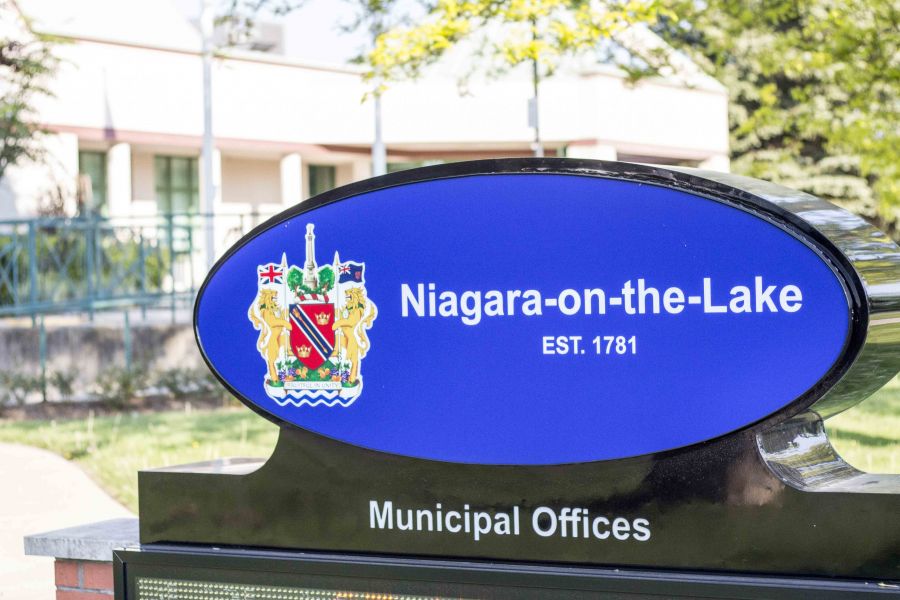But thanks to cost-cutting, NOTL actually has surplus right now, treasurer says
Though the full financial impact of COVID-19 isn’t yet known, the Town of Niagara-on-the-Lake has estimated the cost to the municipality to be about $657,375.
That number will keep changing as the province eases emergency restrictions, town treasurer Kyle Freeborn said in an interview Tuesday.
Last week, the cost was estimated to be $1,049,738, but has been revised since parking fees and other services have resumed.
The numbers come from reports prepared by Freeborn, which aim to provide an estimated financial impact and a summary of various cost savings directly associated with the pandemic. An initial report was based on projected costs and savings until June 30, though those projections have changed.
“It’s changing all the time, mostly with just the restrictions of the provincial orders,” Freeborn said.
He emphasized the costs associated with COVID-19 do not mean the town is facing a deficit — on the contrary, the town is currently seeing a surplus.
The $657,000 figure is a measure of the cost of the pandemic, which is made up of wages that would have been paid in the regular course of town business but are now being diverted to the pandemic, additional purchases to address public safety, lost revenues due to facility closures or other measures such as temporary parking bans, and savings from deferring or cancelling town programs.
“Currently the financial impact of COVID-19 appears manageable and will not put the town into a deficit,” Freeborn said.
The emergency control group, which is overseeing town operations, “will be monitoring the situation and looking for the right balance of responding to the emergency appropriately and mitigating costs where possible. If costs start to creep up, town programs will be rolled back. If things start looking better, some town programs can resume. There are still costs associated with recovery and modifying or servicing public spaces for safe use to be considered.”
It’s currently estimated the town will lose about $1.3 million in revenues, but that is mitigated by about $1.3 million in cost savings.
The $657,000 figure comes mainly from costs supported by normal budget expenses, and incremental expenditures such as $7,928 in overtime, $11,249 for additional enforcement staff (estimated to June 30), $67,317 in department purchases (estimated to May 5).
Department purchases include $2,036 for advertising and supplies, $39,009 for laptops and VPN licences to enable remote work, $7,988 for personal protective equipment, $16,029 for electronic signage and $2,253 for supplies for parks and recreation.
Costs associated with the already approved base budget include $313,024.49 toward the emergency control group meeting daily for discussing and responding to town issues, $349,132.63 for redeployment of staff to other functions to maintain core services, and $390,528.97 for “staff time responding or implementing the direction of the emergency control group.”
Lost revenues include $13,650 in Provincial Offences Act court revenues; $65,000 in penalty and interest on taxes, which were waived to June 30; $195,000 in short-term rental licensing, as the town reverted the increased 2020 fee to 2019 levels; $1,500 in licensing and inspections for fire services; $50,000 in building permits; $79,500 in transit fares and Fort George revenues; $614,200 in metered parking; $48,616 in community centre bookings; $3,340 from March Break camp; $75,567 in arena bookings and $4,896 in other bookings, as well as $19,000 due to the St. Davids Pool closing and $135,000 in water and waste water grant reduction.
“The pandemic is easily one of the most difficult situations that residents, businesses and municipalities have faced,” Freeborn's report to councillors last week said. “Changes with social distancing and a new working environment have impacted all areas of the town’s operations, requiring additional resources to enable remote work and protect the public while enforcing provincial orders.”
The $1.3 million in cost savings comes from an estimated $200,102 in “incidental savings due to compliance with provincial restrictions,” plus $1,094,611 in “savings related to mitigation measures adopted by the municipality,” the report says.
The incidental cost savings are based on the reduction of utilities or not having to supply or support certain facilities through the closure, including public washrooms ($2,114), the courthouse ($1,839), community centre ($5,372), arenas ($23,918), concessions ($32,043), Queenston library ($3,674), parking processing fees ($25,460) and Fort George parking ($30,000).
Savings due to mitigation measures are wide-ranging, with some of the major savings coming from layoffs and contract deferrals ($269,176), deferring road surface treatment ($153,600) and the temporary transit shut down ($140,000).
The report was also clear that the numbers are still changing.
“The situation is fluid and constantly changing. This may lead to certain programs restarting ahead of the June 30 date being used for projections, and a large number of estimates may be invalidated by the time this report is in front of the audit committee and council.”
Given the uncertainty around timelines and availability of funding sources, “it is difficult to fully quantify the full impact of individual items as well at the overall impact to the town.”
Town staff, in partnership with the region, will be “exploring all opportunities for financial assistance from senior levels of government and will provide updates to council on any actions being undertaken by provincial and federal governments as they are announced.”
“As time passes these figures will become more accurate.”
Though things are changing often, Freeborn said the town is so far in a “manageable” position when it comes to the financial impact.
“Overall, it shows that right now the costs of the pandemic, at least for the town, are manageable. And as long as we have some parking revenue coming in it supports some important programs.
With parking fees in place again, some revenues are returning, but other programs are being relaunched, such as the hanging basket program.











